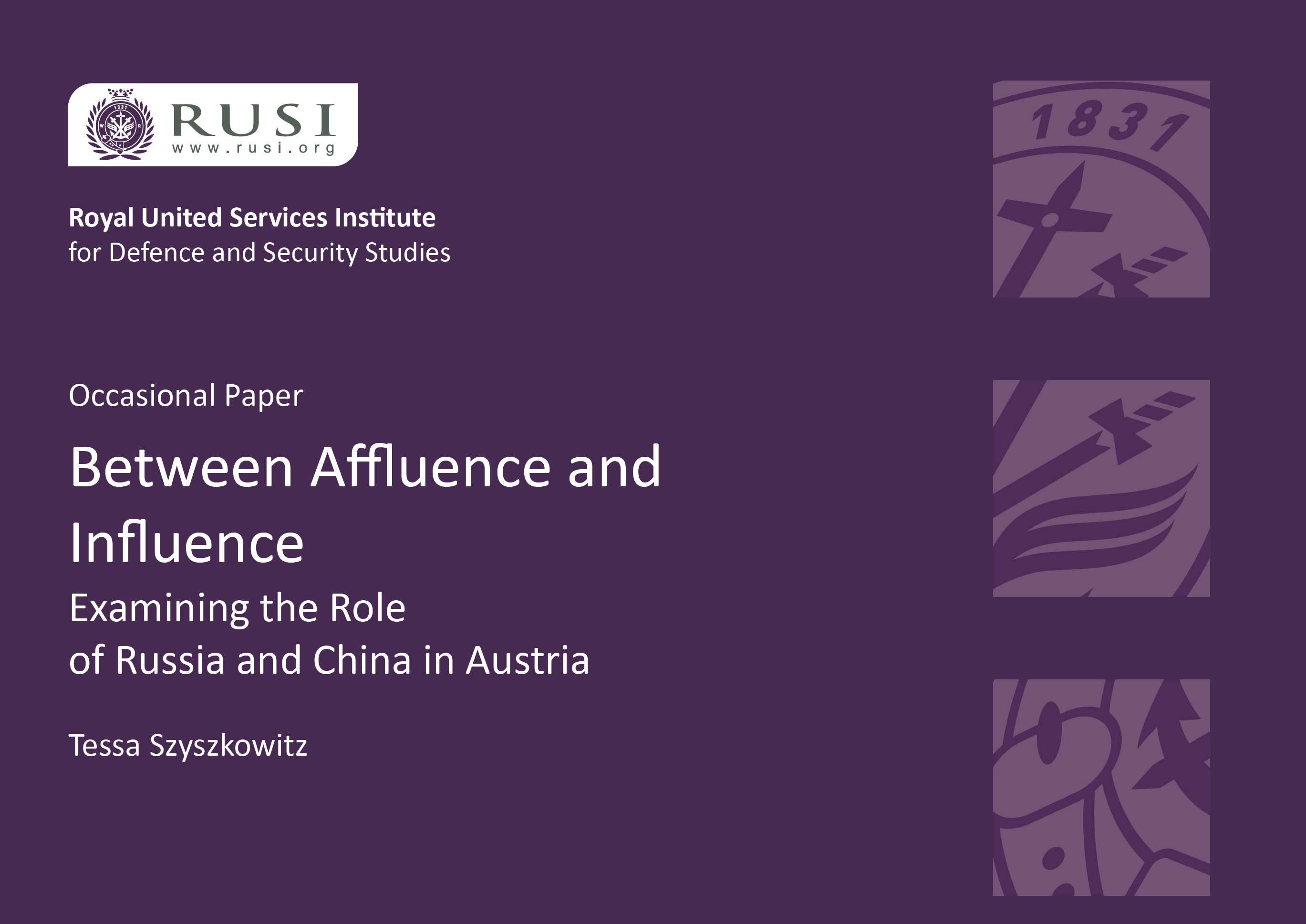ROYAL UNITED SERVICES INSTITUTE
News Release
EMBARGO: 0.01, Tuesday 21 July 2020
For attn: News Desks, Foreign, Political and European Correspondents
Contact: Saqeb Mueen /
Research to examine Russian and Chinese strategic influence and interference in Europe
RUSI has launched a series of studies exploring the functioning and scope of Russian and Chinese influence and interference operations in Europe.
The purpose of the studies is to look beyond the normal and legitimate pursuit of expanding or nurturing bilateral diplomatic relations, and assess the extent by which Chinese and Russian government organisations and/or commercial entities linked to the authorities seek to influence public opinion in European countries, or attempt to interfere with the democratic processes in European nations.
Critically, RUSI investigates whether Russian and Chinese activities and investments – both overt and covert – have made an impact, and if so, how and where.
A series of country-specific studies will examine in detail Chinese and Russian operations in countries including Austria, Germany and Serbia.
Introducing the series, Dr Karin von Hippel, Director-General of the Royal United Services writes:
‘European states may be growing more alert to Russian and Chinese challenges to the Western-dominated international order, but their assessments of the threat and responses to it are not in sync.’
In the first study in the series looking at Russian and Chinese influence operations in Austria, Dr Tessa Szyszkowitz – a noted commentator on the Austrian political scene – observers that ‘Austria has always perceived itself as inhabiting a special position as a militarily neutral country’.
Her paper, drawing on interviews with notable experts on Austrian–Chinese and Austrian–Russian relations as well as a careful review of the available evidence in the public domain, paints a complex picture of economic interests and influence operations involving the country’s politicians, and affecting Austria’s finance and banking communities as well as high technology providers and the murkier world of the intelligence services.
‘Russia’s focus’, writes Dr Szyszkowitz, ‘rests more on direct contact with Austrian politicians’. The country, she adds, ‘could always hope to gain influence – bordering on interference – through the sheer force of Putin’s personal engagement with Austrian politicians’.
Russia also has the advantage of being perceived as a close and lucrative economic partner for many former Austrian politicians. But while Russia may be aggressive in its use of classical influence methods, such as espionage, economic favours and occasionally blackmailing threats, China’s economic investments in Austria also pursue strategic interests, which may increase in significance over time, especially in the wake of the coronavirus pandemic.
Subsequent studies will report on Russian and Chinese influence operations in Germany and Serbia and will expand to other European nations.
The launch of the studies comes soon after the UK government’s decision to deny Huawei access to the country’s 5G network. As Director-General Karin von Hippel observes:
‘The coronavirus pandemic has only accelerated the learning curve and reinforced the growing concern about China. Far too many countries now realise how overly dependent they have been on China for critical goods, often to their detriment.’
NOTES TO EDITORS
- ‘Axis of Disruption: Chinese and Russian Influence and Interference in Europe’, by RUSI Director-General Dr Karin von Hippel, is an introduction to a new RUSI Series on Russia and China in Europe. Access it here.
- ‘Between Affluence and Influence: Examining the Role of Russia and China in Austria’ is written by Dr Tessa Szyszkowitz, a Senior Associate Fellow at RUSI and a curator at the Austrian think tank Bruno Kreisky Forum for International Dialogue. Access it here.
- RUSI is the world’s oldest independent defence and security think tank. Its mission is to inform, influence and enhance public debate on a safer and more stable world. RUSI is a research-led institute, producing independent, practical and innovative analysis to address today’s complex challenges.
- For further information, or interviews, contact Saqeb Mueen,
This email address is being protected from spambots. You need JavaScript enabled to view it. , +44 20 7747 2618



